Location: Jl. Raya Cileungsi - Jonggol Km.3, Cileungsi, Bogor, West Java.
Telp: 021-8231811
Open Time: Mon - Fri 10.00 - 16.30. Weekends and Holidays: 09.00 - 16.30
Admission Fee: IDR 25,000 per person. IDR 5,000 per motorcycle. IDR 15,000 per car.
How to get there: Public transport/bus and private car
Public transport - Take a bus to Bogor or a minibus to Jonggol.
Private car - Use the Jagorawi highway, exit at Cibubur, then take the Cileungsi Lane toward Jonggol Road. Or just activate your GPS.
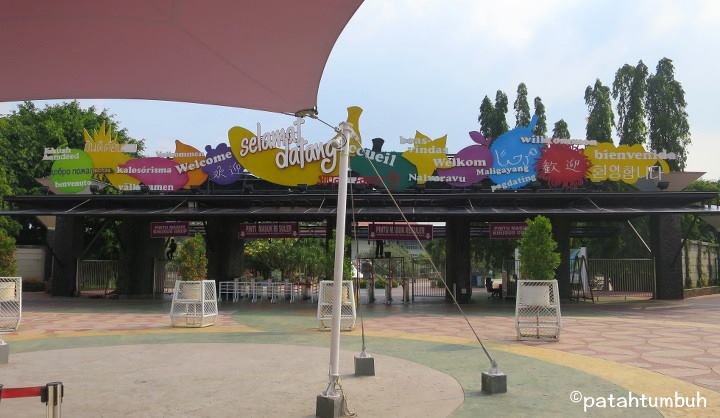
The place is about one hour drive from Central Jakarta (thirty minutes from Cibubur toll exit). It is founded by Ms Tien Soeharto (Siti Hartinah) in 1990 and inaugurated on 14 October 1995 by then-president of Indonesia Soeharto.
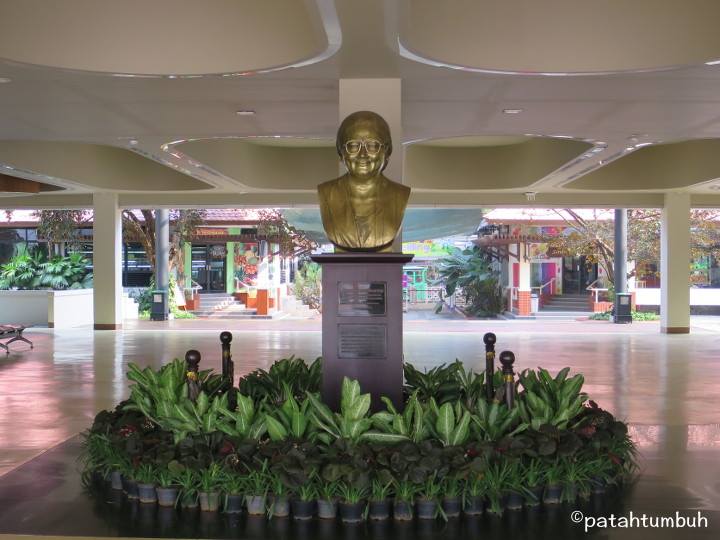
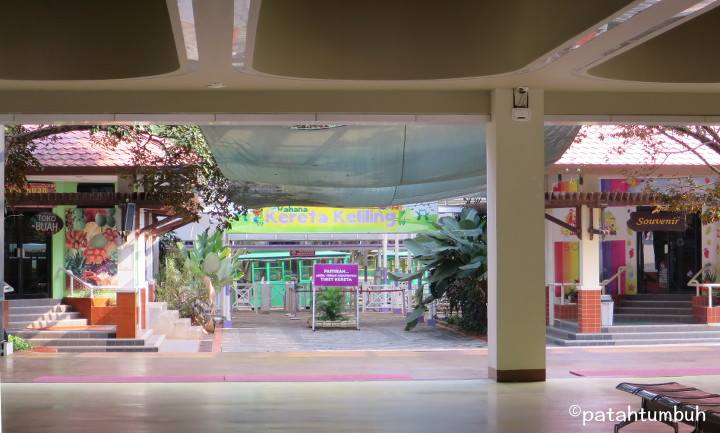
I like this carvings on a wild jackfruit wood in the front section of the park. It depicts an episode of a famous Mahabharata legend when the Pandawa brothers and Dewi Drupadi were in exile in Kamaika Jungle for twelve years, during when they ate fruits gathered from the jungle to survive.
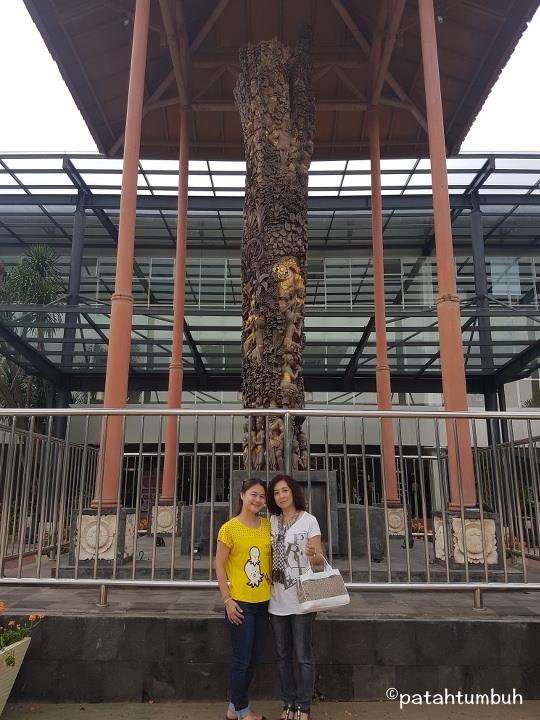
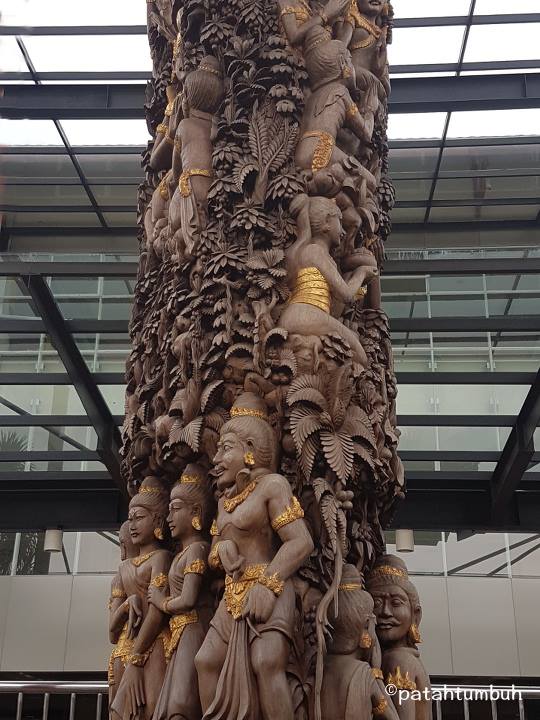
The park occupies about 290 hectares land and has a vast collection of fruit trees (about 100,000 trees and 1,500 fruit plant varieties) from all over Indonesia. It is one of the biggest tropical fruit trees presevations in the world. Once founded for conservation purpose - hence the laboratory facilities for agronomy and best quality seedlings breeding, it now has additional functions as recreational and educational center.
There are several packages offered to enjoy the park like Smart Cultivation Tour, Tropical Exotic Tour, Paddy Legend Tour, Green Land Tour, and Water Recreation. Since we were not interested in other things there but the fruit collections, we took the Green Land Tour. A bus took us touring the fruit tree garden and the driver introduced us to the various spots and plants around the park, make some stops at designated areas: melon nursery, salak garden, and star-fruit garden. The stops depend on which tour you take and what kind of fruit is in season when you are there.
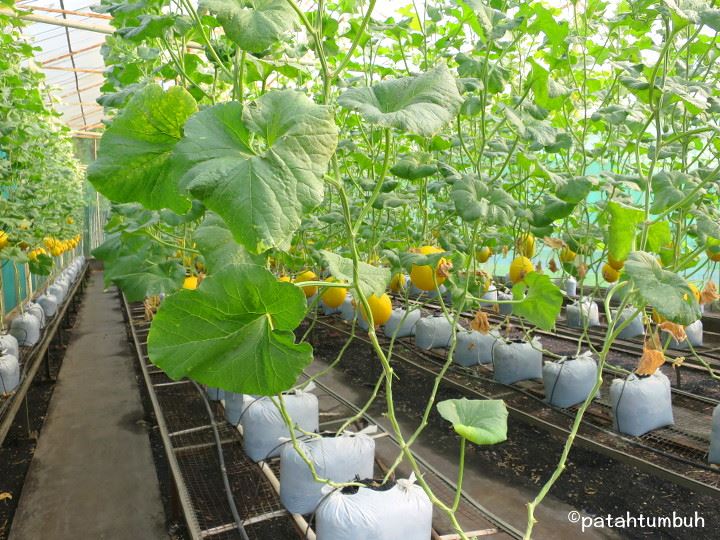
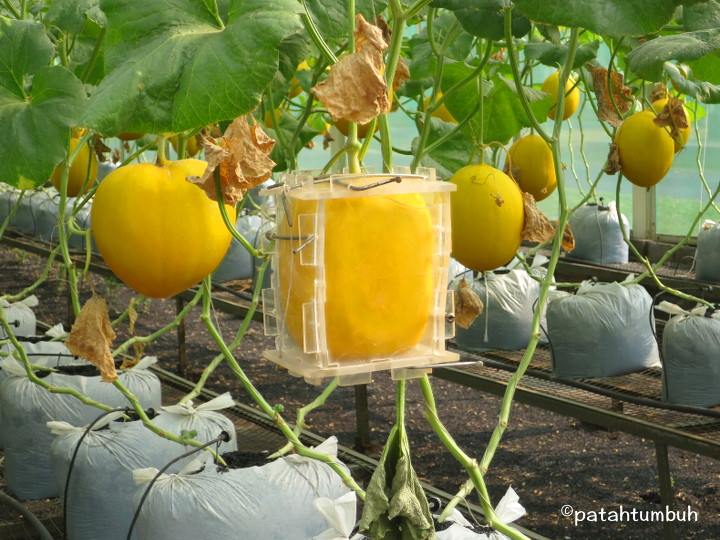
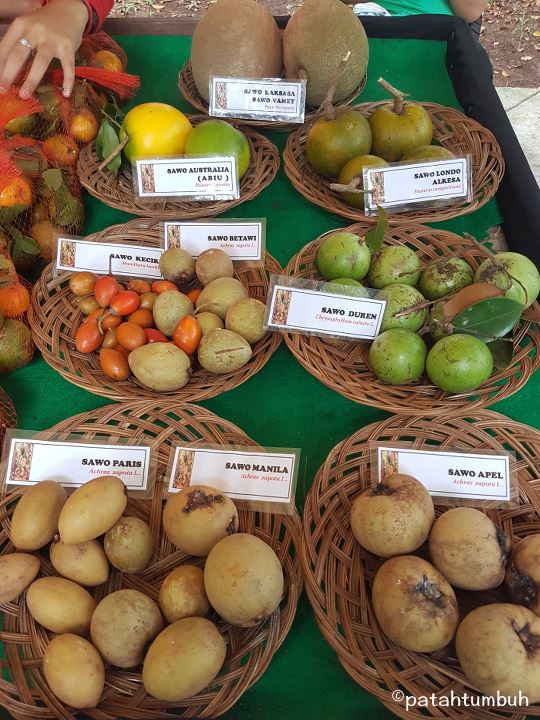
I especially am delighted in learning various kinds of rare fruit and learn about them. Kola nuts are used in many African ceremonies like marriage, child naming, and funerals. The seeds contain caffeine and chewed as a stimulant. In western African and Anglo-American herbal medicine, it is used as an antidepressant, to treat headaches, migraine, and diarrhea. Coca cola and several other soft drinks were once produced using these nuts but now it is replaced by synthetic citrate caffeine. It would be very interesting to know the medicinal properties of this plant.
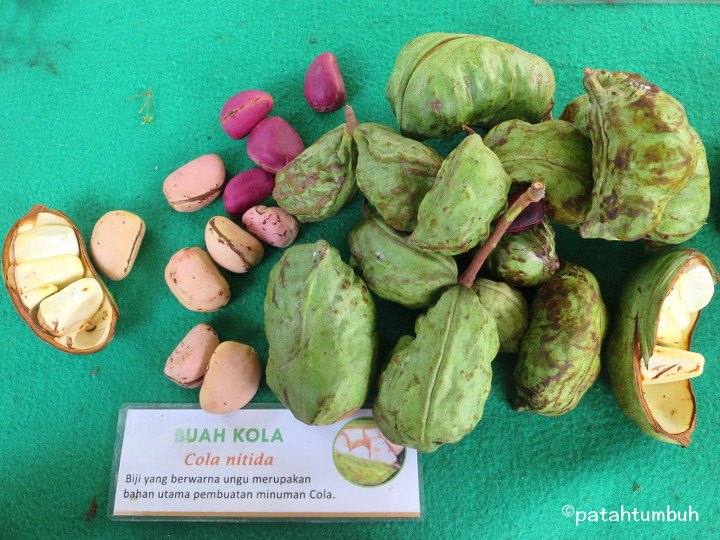
Another fruit that attracted me is Berenuk (Crescentia cujete / Calabash). Berenuk leaves and fruits contain saponin, flavonoid, and polifenol. The leaves are used to treat wounds and the fruit pulp is used to treat diarrhea, bronchitis, and asthma. The fruit shell is hard like coconut shell and used to make water scooper and hand crafts like: jars, vases, hanging flower container, lamp shades, and even purses.
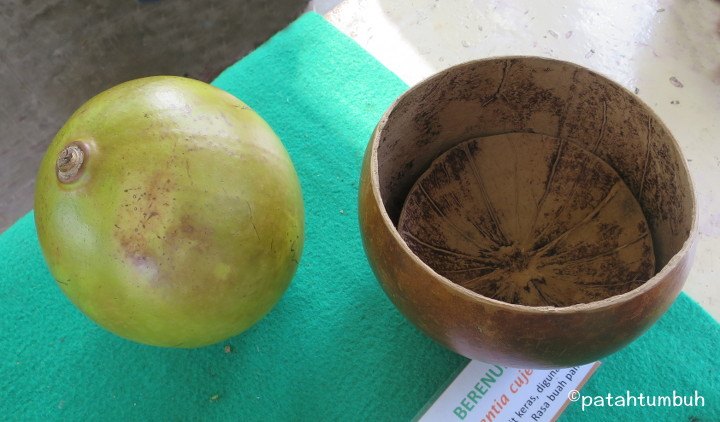
The last stop is Lake Cipicung where you can find many people relaxing and just enjoying the environment. You can take the bus back to the front gate at the other end of the spot whenever you feel like it.
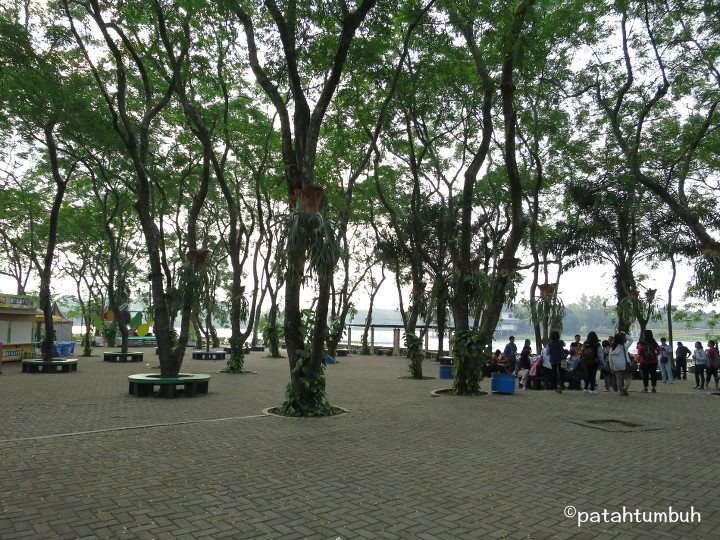
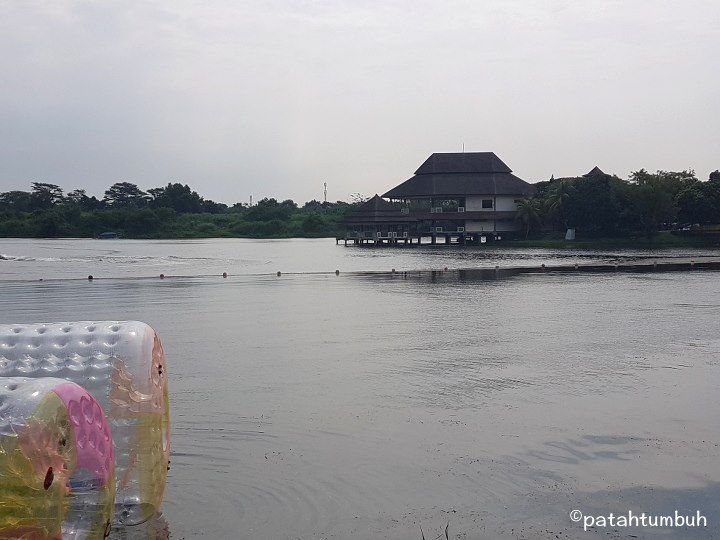
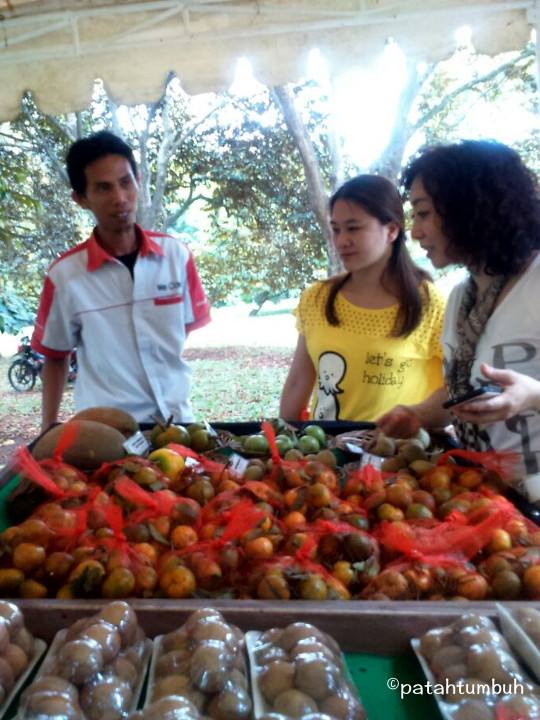
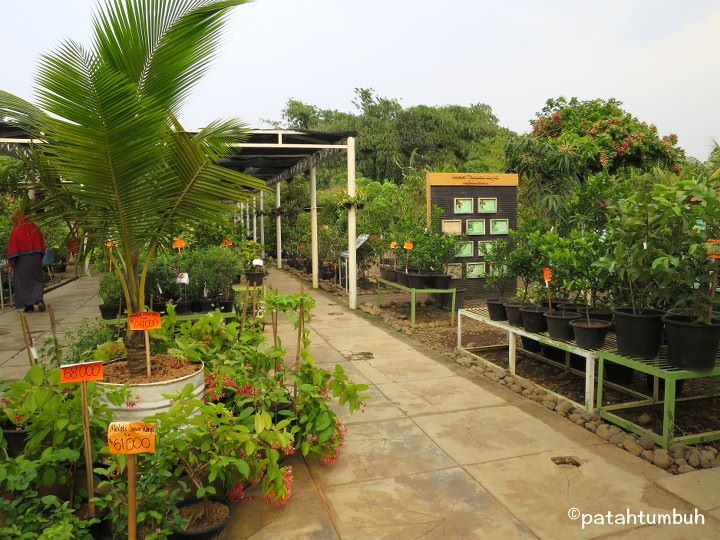
If you are interested, you may stay the night at one of their unique tree-house-like cottages or in the cabin house. Other option is camping. It sure will be a great experience to sleep in the middle of a “forest”. The price ranges from around IDR 700,000 to IDR 1,250,000.
Simple lunch is available at their canteen. If you wish for better meals, you might want to eat before entering the place.
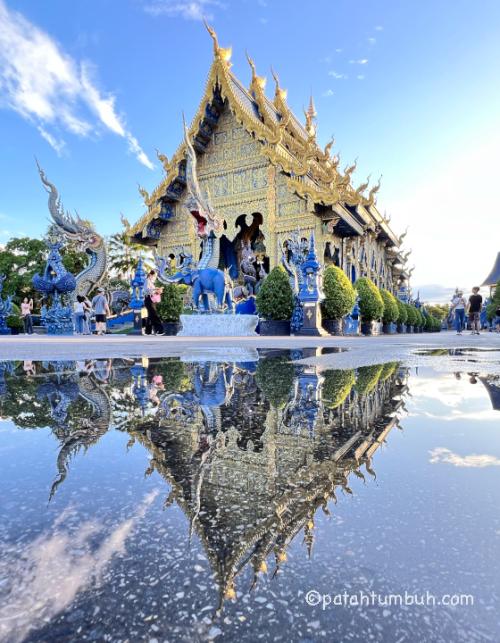

Add new comment